
“Thanks in advance”
This demeaning management phrase, often accompanying some unwanted assignment, is the polite corporate way of saying, “You’d better do this terrible thing or I’ll eat your paycheck.” Don’t miss these words and phrases smart people never, ever use.
Instead: Cut to the chase with, “I know you don’t want to do this… in advance.”
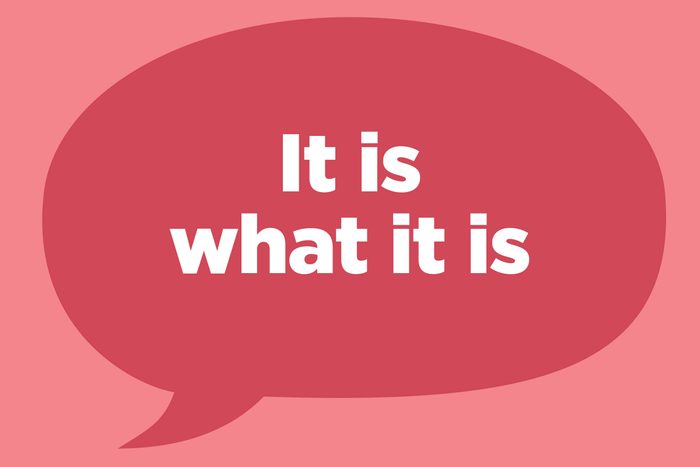
“It is what it is”
This desperate filler phrase is a longer version of “whatever,” and a shorter version of “I have nothing helpful to contribute, but don’t want to stop talking yet.” Weakest. Advice. Ever.
Instead: Memorize this clever-sounding T.S. Eliot line: “If you aren’t in over your head, how do you know how tall you are?”

“At the end of the day”
This perspective-seeking cliché sounds even worse than cousins “all in all” and “when push comes to shove,” particularly because it’s used at all hours of the day. You’re probably using these 70 words and phrases all wrong, too.
Instead: Say “ultimately” and you’ll sound more like a classy Bond villain instead of a 19th-century factory worker.
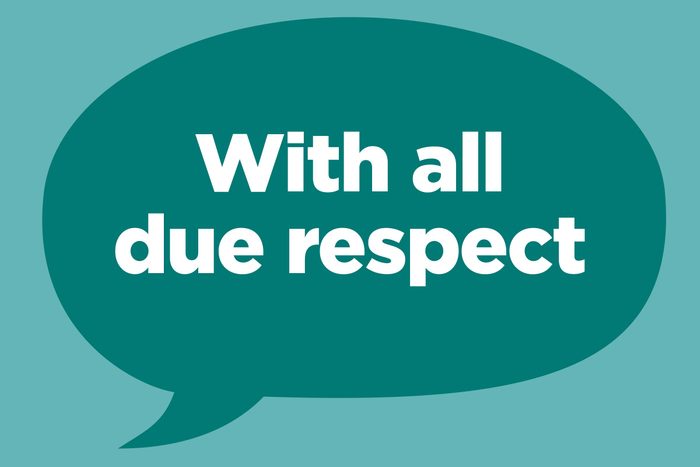
“With all due respect”
Almost always coupled with an insult or unsolicited advice, this phrase is a smarmier way to say, “Prepare to be disrespected.” Examples include: “With all due respect, you’re fired.”
Instead: Eliminate the preamble. If you’re going to say something that others might find offensive, just say it or keep quiet.
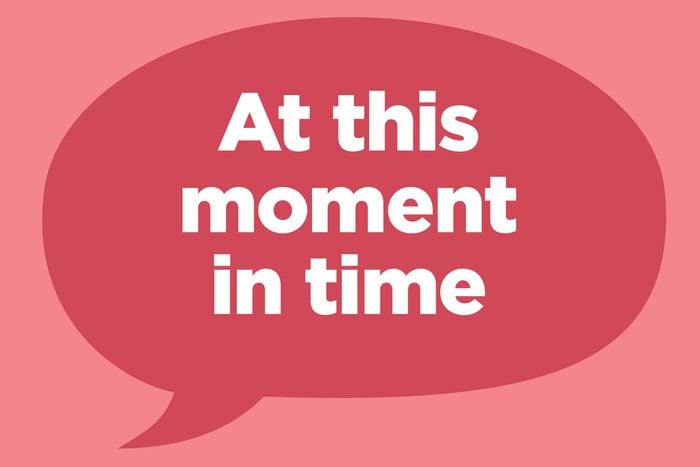
“At this moment in time”
“I deserve a raise,” you say. “Not at this moment in time,” the boss replies. What an oddly philosophical way to murder someone’s dreams. It reminds us of that old business koan: “What is the sound of one redundant employee crying?”
Instead: Be honest. Rip off that bandage in one swift motion: “I’m sorry, but that is never going to happen.”
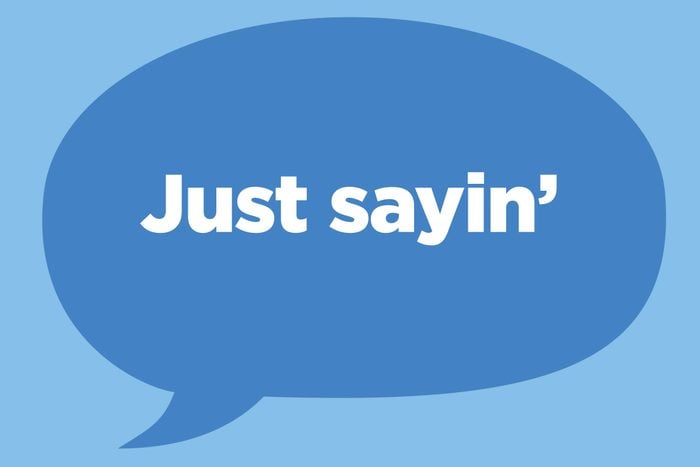
“Just sayin'”
How illuminating. Thank you for clarifying that the thing you just said is a thing you are saying. These are the phrases that make you seem trustworthy.
Instead: Show an ounce of empathy and ask, “Do you understand what I’m trying to say?”
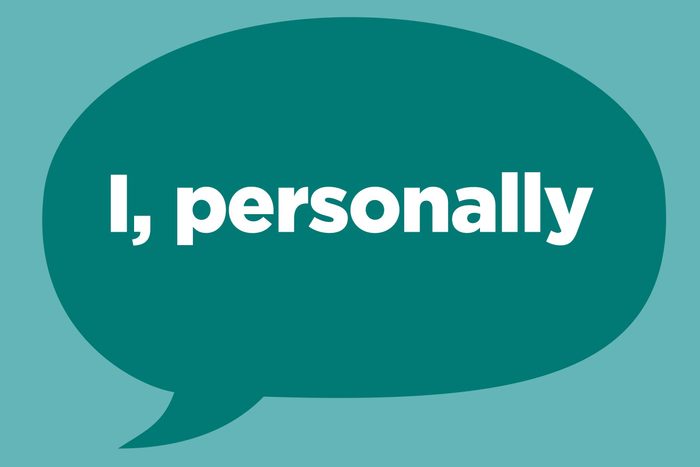
“I, personally”
As opposed to “I, collectively?” Your redundant adverb just stole an extra second of life from everyone in the room. How do you, personally, feel about that?
Instead: Just say “I,” or, wear a T-shirt that reads “DISCLAIMER: The views expressed by this doofus do not reflect the views of society at large.”

“YOLO”
“You Only Live Once” is mostly an excuse for doing something selfish, irresponsible, or dumb, but the act itself should be transgression enough. Don’t punish your friends with this insufferable abbreviation on top of it. Find out more about the origins of these commonly used phrases.
Instead: Before you speak or act a fool, remember: YODO, too.

Totes
“Totes” is the shortened version of “totally,” another equally annoying word in its own right. But “totes” takes it to another extreme and makes you sound immature, sliding text message speak into your everyday language.
Instead: Please, just stop. Erase this one from your lexicon immediately.
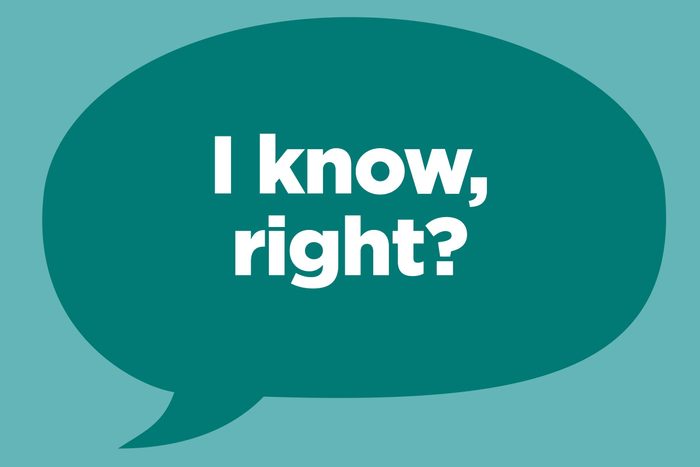
I know, right?
This phrase is a catch-all answer, from everything from “It’s so hot out today!” (“I know, right?!”) to “I’m so happy that meeting went well!” (“I know, right?!”). Of course, the other person knows. They said it to begin with. Don’t miss these 24 things you’ve been saying wrong this whole time.
Instead: Try following up with some meaningful conversation instead of this bland, blanket statement that makes you sound like a teenager.